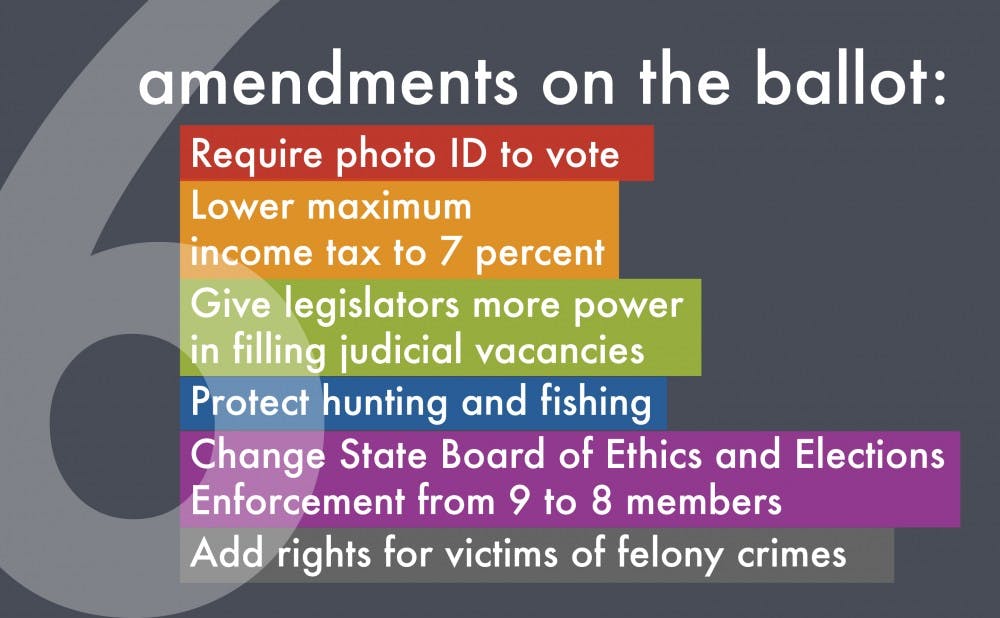Voter ID requirements were one of the four constitutional amendments that passed in Tuesday's elections, which saw Democratic domination in Durham, but Republicans kept their stranglehold on the state legislature.
All voters in North Carolina this year voted for or against six amendments on the ballot in what is known as a “blue moon election,” which happens once every 12 years and means there are no statewide races for U.S. Senate, governor and a national president race. Amendments approved by voters will eventually be incorporated into the North Carolina constitution in some form, according to Mac McCorkle, professor of the practice in the Sanford School of Public Policy.
Voters voted in favor of four of the six amendments, including expanding constitutional rights for crime victims, creating voter ID requirements, establishing a constitutional right to hunt and fish and lowering the income tax cap.
Voters voted against the other two amendments, one on judicial vacancies and other on the Ethics and Elections Board. Read more about each amendment here.
As for the U.S. House of Representatives, North Carolina maintained its ratio of 3 Democrat House seats and 10 Republican House seats. The key House races this year in North Carolina included District 2, District 9 and District 13, which all eventually turned Republican, with George Holding, Mark Harris and Ted Budd maintaining Republican House seats, respectively.
However, in the state legislature, Democrats looked to have broken the Republican party’s previous supermajorities of 75-45 in the House and 35-15 in the Senate—assuming results stayed as they were as of 1:15 a.m. Wednesday.
This supermajority has allowed Republicans to override Democratic Governor Roy Cooper's vetoes without having to win any Democratic support.
As for Durham representatives, U.S. House of Representatives incumbents and Democrats G.K. Butterfield and David Price won their districts, while Democratic state senators Floyd B. McKissick Jr. and Mike Woodward rolled their way to easy re-elections. Democrats MaryAnn E. Black, Marcia Morey, Zack Forde-Hawkins and Robert T. Reives II also won their races for seats on the State House of Representatives.
In Durham, Democrat Satana Deberry, who defeated incumbent Roger Echols, took district attorney, and Democrat Clarence Birkhead, who defeated incumbent Sheriff Mike Andrews in the primaries, became Durham County Sheriff.
Birkhead, who had no other challengers besides a potential write-in candidate, won with 92 percent of votes, and Deberry took 100 percent of votes, with no write-in challengers. According to McCorkle, the People’s Alliance—who endorsed both Birkhead and Deberry—played an influential and powerful part in Durham’s local politics.
In other contested seats for district court judgeships, Democrat Dave Hall overthrew Democrat incumbent Fred Battaglia Jr. and Democrat Clayton Jones defeated Republican Jim Hall.
Get The Chronicle straight to your inbox
Signup for our weekly newsletter. Cancel at any time.

Mona Tong is a Trinity senior and director of diversity, equity and inclusion analytics for The Chronicle's 117th volume. She was previously news editor for Volume 116.

